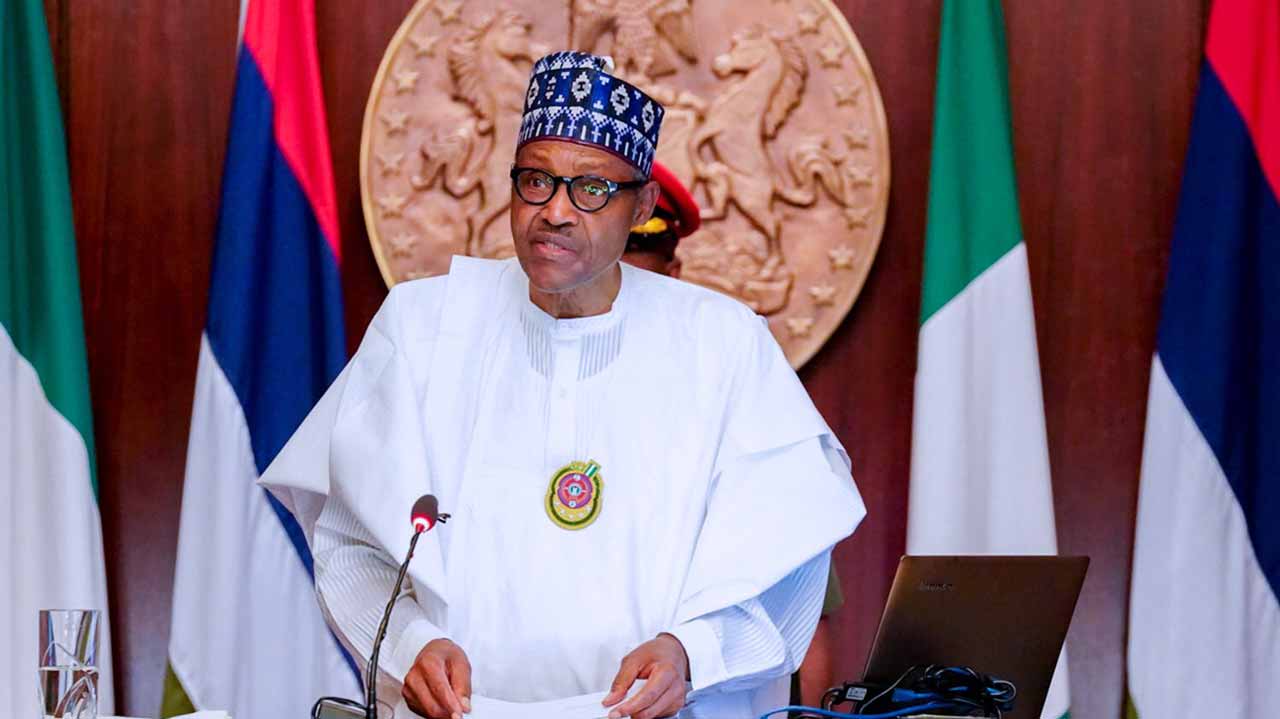“Time Buhari o da,” those are the words of Mrs. Anioluwapo Olaoye, a fish seller in Alagbole, Ogun State, which translates in english as: “Buhari’s time is not good.”
Olaoye is one of many small business owners who spoke to Prime Business Africa about the impact of President Muhammadu Buhari’s eight years tenure on their livelihood.
Join our WhatsApp ChannelThese small business owners have no good words to describe President Buhari’s administration, having been at the receiving end or bearing the brunt of some of his infamous policies between 2015 and 2023.
Mrs. Olaoye lives and trades in Nigeria where over two million Nano, Micro, Small and Medium Enterprises (NMSMEs) shut down between 2017 and 2021, according to the Director General, Small and Medium Enterprises Development Agency of Nigeria (SMEDAN), Olawale Fasanya.
Their businesses were challenged and crippled by bad government policies, soaring inflation, high cost of doing business, lack of affordable credit, heightened insecurity that led to killings and kidnapping of farmers, bad electricity and bad road networks, amongst others.
Under Buhari’s administration, the mortality rate of Nigeria’s MSMEs has been worrisome, as active MSMEs dropped from 41 million in 2017 to 39 million in 2021.
How the small business owners’ problem began
When Buhari was sworn-in in 2015, he said, “I belong to everybody and I belong to nobody,” promising Nigerians a change like no other.
- While this statement was well embraced by many Nigerians who hoped for better days during his tenure, some believed Buhari could resume the pains he inflicted on Nigerians during his time as a military ruler between December 1983 and August 1985, when his policies sent Nigeria into recession and deteriorating economy led to a coup against his regime, which resulted in his ouster.
- However, looking back to his tenure in the last eight years, the pessimists seem to have guessed right, as Buhari’s policies showed he was reliving the 1983 and 1985 days over again.
One of his major policies early in his administration was to restrict access to foreign exchange (forex/FX) for some imported goods, such as rice and textiles, amongst others in June 2015 to stabilise the forex rates and the country went into recession the next year.
- Interestingly, the official foreign exchange rate, which Buhari wanted to tame, increased from below N200/$1, during his predecessor’s period, Goodluck Jonathan, to N462.33/$1 as of Friday, 12 May 2023 – indicating the value of the Naira fell by 131.1 per cent, while the cost of a Dollar rose by N262.33 within eight years.
- In the black market, the forex rate rose from N200/$1 to above N740/$1 within the review period, reflecting the Naira to Dollar rate appreciated by N540 or 270 per cent and Buhari’s plan to strengthen the Naira failed.
- Note that due to the restriction of 41 items from the forex importation list, prices of goods skyrocketed, as exporters had to look to the black market where FX was sold at a premium rate amid restriction to forex in the official market, and inflation soared from nine per cent in May 2015, when Buhari was sworn-in, to close December 2019 at 11.98 per cent.
The same year (2019), Buhari launched another policy, border closure, which has been termed as anti-small business, considering the majority of Nigeria’s SMEs use the land to import their goods into the country.
- While Buhari was trying to fight gun smugglers with the border closure, he was inflicting pain on small businesses and the economy at large.
- The decision was heavily criticised, as it was viewed as Buhari shooting Nigerians in the foot while claiming he is trying to save them.
- Buhari ignored the outcry and the country entered recession in 2020, caused by the COVID-19 pandemic, the global trade shutdown and the underlying ripple effect of his policies. Inflation took another aim for the roof, up from 11.98 per cent at the end of 2019, to 22.04 per cent as of April 2023.
To cap it up, Buhari went ahead to phase out old N200, N500 and N1,000 notes for redesigned banknotes within two months, against international standards of at least a year or two.
- The hastiness in implementing the Naira redesign policy resulted in Naira crunch, making it impossible for Nigerians to transact, causing a drop in revenue, raising the cost of operation and also forcing some businesses to shut down temporarily.
How Buhari’s policies impacted small business owners
Mrs. Olaoye said Buhari’s time negatively impacted her business, stating prior to his administration, a carton of fish cost N12,500, but now, she buys it for N36,500.
“It was during Buhari’s time that they said the border was closed. Before fish wasn’t expensive, he just came and closed everything (border). He didn’t allow importation of fish,” the fish trader said in a dispirited voice in Yoruba, which was translated to english.
According to her, “People are getting upset because our fish is becoming expensive, and it has made it difficult to sell fast.”
Disclosing her unpleasant situation, Olaoye said: “Look since morning, I haven’t sold all my fish. Eight years ago, we sold kilo of Titus for N800, but it is now N2,200. That’s too much.”
She’s not alone in this situation, as a yam trader, who identified himself simply as Zayyanu, said the tenure of former Presidents; Musa Yar Adua and Goodluck Jonathan were better than that of Buhari.
He disclosed that eight years ago, N70,000 was enough to buy 10 baskets filled with 100 sizeable yams each, but now, 10 baskets with smaller yams of the same quantity are sold above N100,000.
For John Thompson, a frozen foods and store owner, a carton of chicken was about N10,500 or highest N12,000 before Buhari’s first term, but the price now fluctuates around N21,000 to N23,000.
Thomson further stated that a carton of Turkey cost about N18,000, but the price now hovers above N31,000 and N32,000.
He said the economy has been “very tough” for his business, “I run gen (generator) everyday, fuel N5000,” Thompson stated, as he rated Jonathan’s tenure above that of Buhari.
For Olamilekan Moruf, a meat butcher, he said since the prices of his meats went up, customers think he’s just inflating prices, not knowing that it is not his fault.
He disclosed that within eight years of Buhari’s administration, the cost of the meat he buys for sale increased by N200,000, up from N150,000 to N350,000 or N400,000.
Moruf said the financial challenges faced due to Buhari’s tenure are enormous, as some of his colleagues that were well-to-do before the current administration started begging for food as their meat business took a hit during Buhari’s time.
According to a bread store owner, who chose to speak on condition of anonymity, she said before Buhari came in, N200,000 is enough to run her business, but now, it gulps over a million to remain operational.
Pointing to one of the breads on her shelf, she said it cost N350 in 2015, “but now it is N1,200. This Big Treat, then it was N200, now it’s N750. All the bread, they increased massively.
“At least, the ones we are selling N100 before, now it’s N300. This one, it was N150 then, but now, N500,” she said, adding separately that the cost of investment has tripled, “I’m not supposed to tell you, but before, we can run our business with like N200,000, but now it has entered millions…. then if you buy bread N200,000, everywhere will be filled up.”
Another entrepreneur, who deals in raw food items, such as rice and beans, and spoke to our correspondent on condition of anonymity, said a bag of rice went up from N11,000 to N38,500, while that of beans currently sells over N40,000, against the N8,000 a bag was sold during Jonathan’s tenure.
“Jonathan’s time was the best to me. Because then, when we were buying rice, it was N11,000 per bag, but when Buhari came in, everybody in this nation knows about it. Now rice is about N38,000 Which is almost times three of what we were buying (rice) before.
“Before, we were buying beans like N8,000 during Jonathan’s time. They even bring beans for me from North without paying. If you are sincere with them, they will even send you beas, after selling, you will send them money.
“But now, without you sending them money, they will not send (the beans). And beans’ about forty-something thousand Naira now. This is just eight years,” the rice trader said.
He stated that Buhari “makes it inconvenient for us, because the prices are very higher compared to Jonathan’s time or Yar’ Adua’s time,” and also said the outgoing President didn’t help small business owners, instead, he “killed the business. Then we can use N50,000 to do business, but now, without much money, you can’t set up a business.”
A Barber saloon owner, in Ketu, Lagos State, who also spoke anonymously, said the impact of Buhari’s tenure on businesses can be traced through the increase in fuel price, which went up from N68 per litre to N189, and the cost of some product used in his saloon.
“Normally, if we want to spend money on this or that in one week, we spend about N10,000 to N15,000, but now, it is above N20,000, excluding N6,000 fuel we buy twice.
“We buy powder for N200 then, but now, it is about N1000. Does relaxer even cost about N150 then, but we buy it around N1,000.
“If one knows that the prices will change this significantly, one would have been jotting the prices down to know how much we spend yearly, we would be cursing the government,” the Saloon owner said in Yoruba, translated to english.
Expectation for the next administration
Her major concern is the cost she buys the carton of fish and hopes the new administration, President-elect Bola Tinubu, will work to bring down inflation
“Tinubu should please let the goods come down again,” Olaoye said, adding separately, “Tinubu should please help us open everything, so things can be good again.”
Mr. Thompson urged the incoming government to find a way to regulate the prices of foodstuff and the government “should forget about the (removal of) fuel subsidy because movement is like the livewire of the masses. Once the fuel price increases, everything will increase.”
Moruf asked that the next administration should return Nigeria’s economy back to what it was during Jonathan’s time.
On the part of the bread store owner, she said there’s no expectation because the government will not do whatever she expects.
However, the rice trader said if Tinubu reopens all the borders, prices will drop, “Tinubu himself has said he will start from the good works Buhari has been doing, but I just believe God will still sustain us no matter what. He knows how to sustain his children.
“We would just give them benefit of doubt because he said he (Tinubu) will do a good work,” adding that the economy could be better once all the border are reopened, “I believe if Tinubu will open border, automatically, things will drop.
“You know, when Jonathan was the President, border was opened, so everybody had access to go and bring rice, but when Buhari came in and shut the border, it made the thing very difficult for some of us, but I believe if Tinubu open the border, things will (automatically) drop.”

















Follow Us